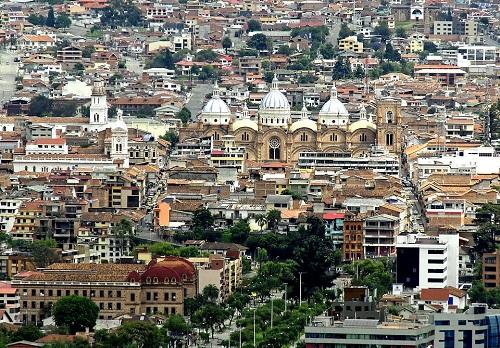How much money do you need to move to a new country?
That’s not the question to ask.
The question to ask is this: How much money do you have to live on?
In these dispatches, I introduce you to places where you could live comfortably on as little as $1,200 or $1,500 a month, maybe less. That’s not a big nut… about equal to the average monthly Social Security check.
But maybe a monthly Social Security check is a far distant possibility for you. If you have no other income to count on, is it unrealistic to think about relaunching your life somewhere sunny, warm, welcoming, and adventure-filled?

Nope. You just need to apply a little imagination.
Here’s my blueprint for being able to live wherever in the world you decide you’d like to live… no matter how much money you have.
I call it The Millennial Plan because it works for anyone of any age…
Step #1:
Tally up your total monthly income, not including your current paycheck. That is, figure out what income you have beyond any salary that will disappear with your move. If you’re moving in retirement, maybe you have Social Security, pension, 401(k), or IRA funds. Whatever your age, maybe you have investment income.
Step #2:
If your total monthly income as you project it beyond the end of your current working life isn’t enough to support the lifestyle you want in the overseas destination that has your attention, you’ll need to supplement it, right?
You probably aren’t going to be able to get a job in your new country of residence. In most places it’s hard or impossible to obtain a work permit as a foreign resident. (Panama is one notable exception to this rule.)
But who wants a job anyway? The point of taking off for some beautiful, exotic overseas haven is to escape work-a-day life, not to reproduce it. The good news is that, while it’s difficult to get a job as a foreigner in most of the world, it’s easier than it’s been at any other time in history for an individual to generate his own cash flow.
You could:
Invest for income. If you have available investment capital, consider using it to create an ongoing monthly cash flow. The easiest option for this is a rental property, perhaps in the location where you’re considering moving, meaning you’d be generating cash flow in the local currency to supplement your local living costs.
Start a laptop business. In today’s world this is easy, common, and possible anywhere you have a good internet connection. You could become a travel writer, a travel photographer, a consultant in a field of expertise, or an online teacher, to suggest just a few of the possibilities. I know expats making good incomes plying all those online trades as I write and many others.

Start a bricks-and-mortar business. This is usually a more ambitious undertaking than a laptop enterprise, but the options are nearly unlimited and can allow you to leverage past professional experience or to pursue a long-set-aside hobby. Obvious business ideas for an expat most anywhere in the world include opening a restaurant, a bar, a bed and breakfast, or a hostel. Less typical but very realistic possibilities include auto repair, pool cleaning, landscaping, and hospitality training services (that last is desperately needed in many developing-world destinations trying to cater to growing expat communities but unable to find local help with any sense of real-world service).
As an American abroad, you have an advantage. You come from a sophisticated, competitive marketplace. You understand the idea of identifying a niche and then filling it.
In many countries around the world, the marketplaces are much less developed. When you arrive, you’ll notice straightaway opportunities for small businesses and services that you’ve watched mature and become successful in the States but that here, in this developing environment, don’t exist at all.
Years ago, a friend moved to San Juan del Sur, Nicaragua, where he decided to build a house and a small hotel by the beach. Jim began importing building materials and furniture and then realized that he had nowhere to store the things while construction was under way.
He looked around the area, even in Managua, for a self-storage facility. No such thing existed. So, along with his house and his small hotel, Jim decided to build self-storage units as well. The first units were contracted for before he’d finished erecting them.
Perhaps the easiest way, though, to earn money living overseas is to set yourself up with a laptop-based business. Thanks to 21st-century technology, it’s easy to generate a small stream of income to supplement whatever nest egg or other income you have or even to support yourself 100%.

Look at my longtime friend and colleague Lee Harrison, for example.
Lee, who took early retirement at age 49 to move with his wife to Cuenca, Ecuador, decided that, as part of his overseas reinvention plan, he would take up travel writing.
Today, 15 years later, Lee is one of our core Live and Invest Overseas contributors, editor of our Overseas Property Alert.
Lee supplements his pension income with the income he earns scouting, researching, and writing for us. This former engineer has reinvented himself into a bona fide investment editor.
Today Lee enjoys a second career that is completely flexible and controllable, meaning he works when and as much as he wants… and that subsidizes a lifestyle of perpetual travel and discovery.
Lee is a dramatic story of successful reinvention overseas but hardly the only one I know. I could tell you about dozens of folks… regular people just like you… who mustered the courage to take the leap and then found ways to generate the income they needed to live the lifestyles they imagined in the places that for them qualified as dreamy.
